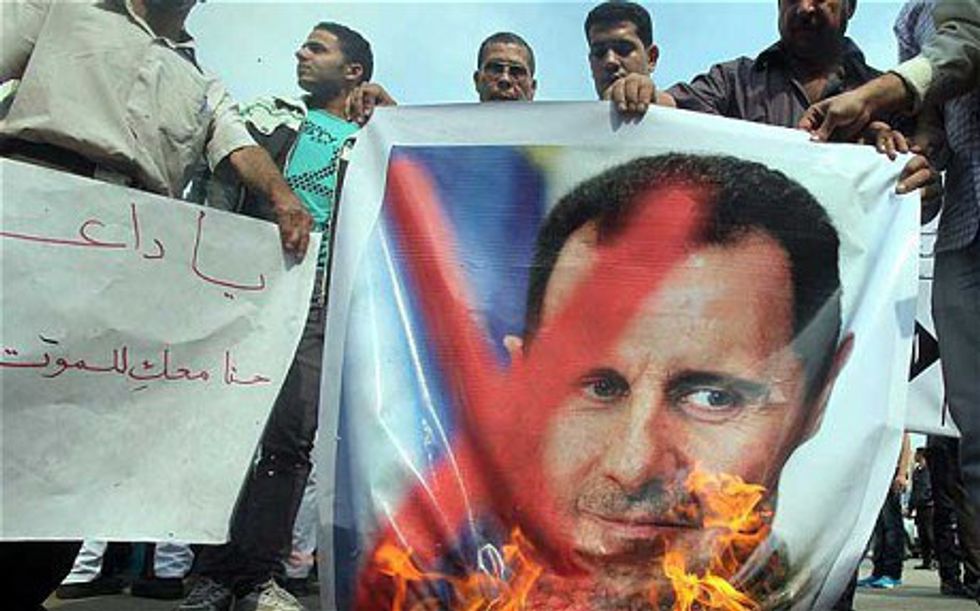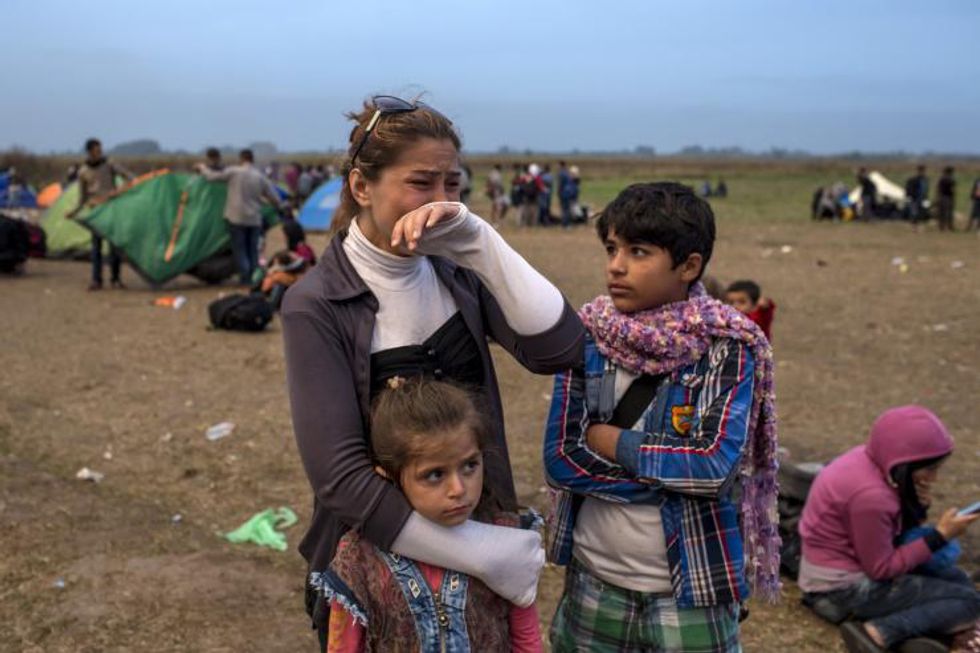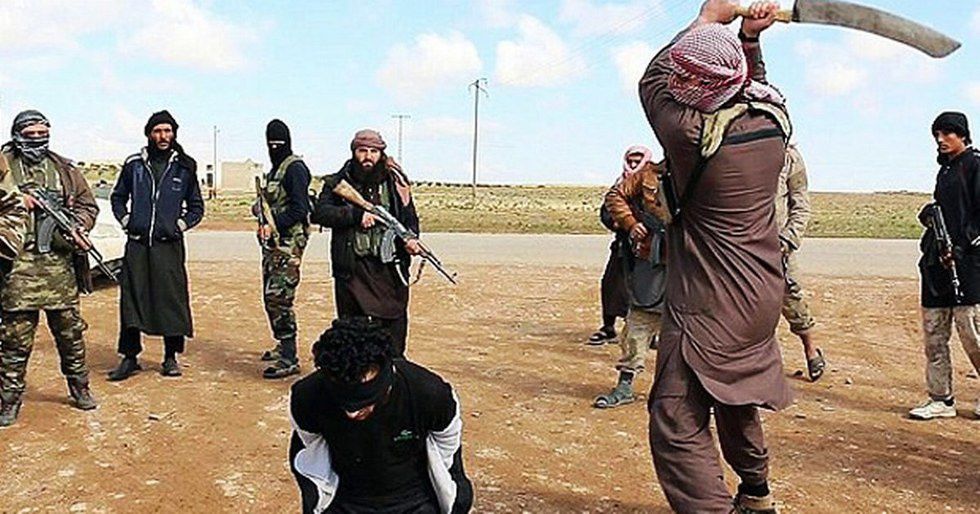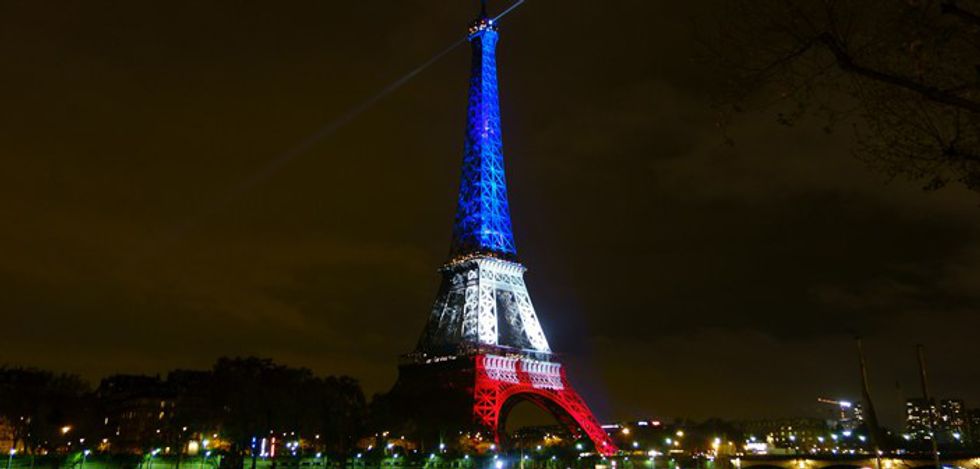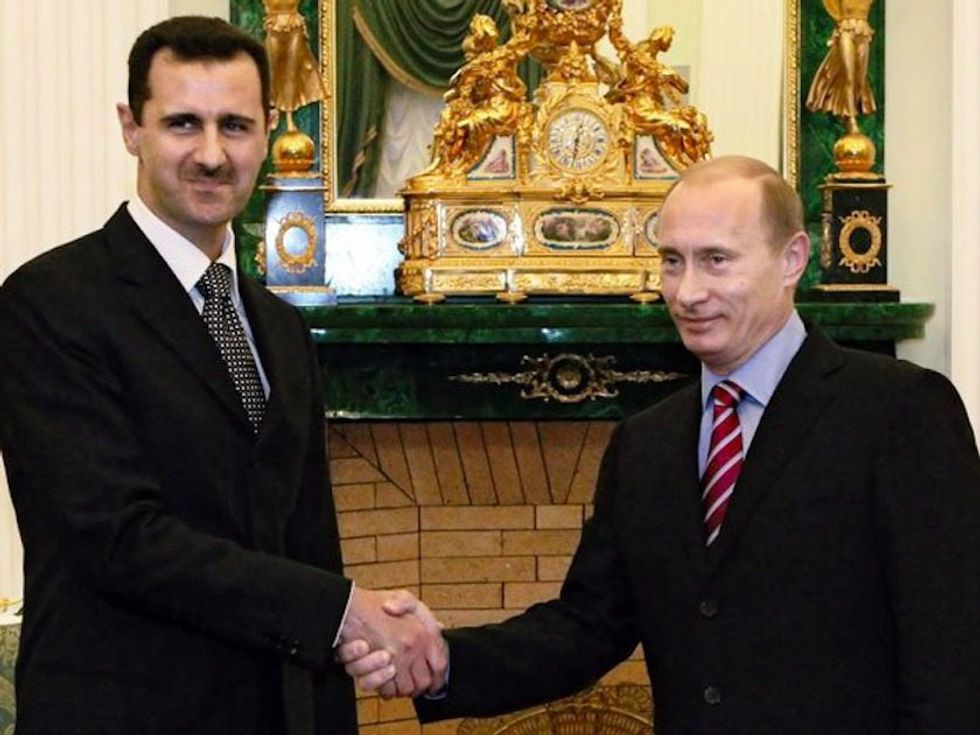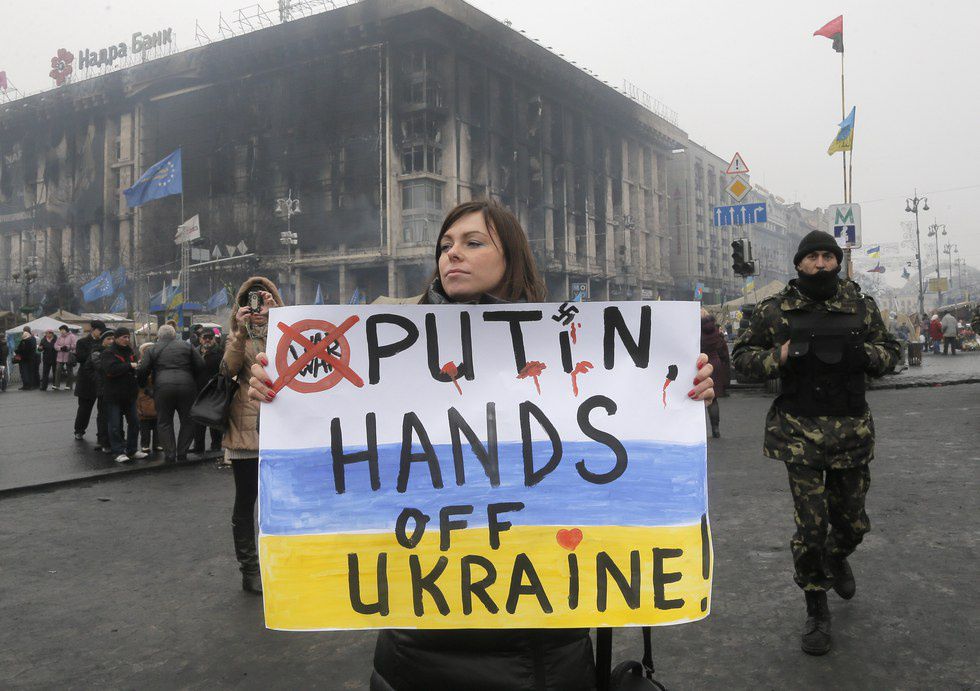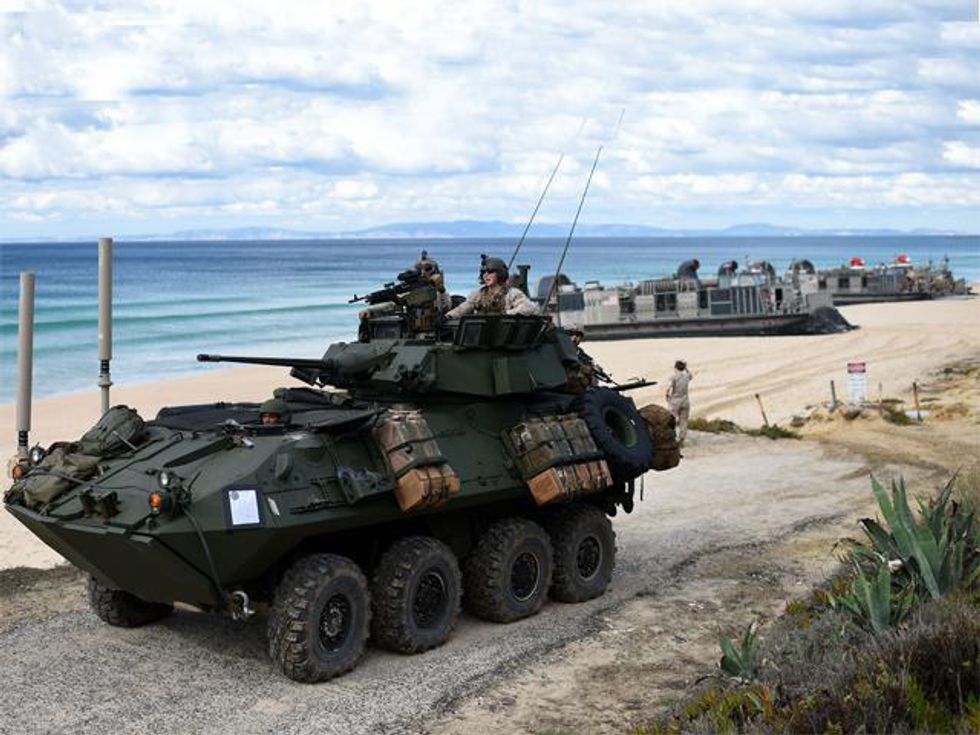1. There’s a civil war in Syria.
The war began on March 15, 2011 when pro-democracy protests broke out in the southern Syrian city of Deraa. These protests were targeted at dictator and president of Syria Bashar Assad and were sparked by the arrest and torture of Syrian teenagers who painted revolutionary slogans on the wall of a school. The initial protest ended with the death of several demonstrators by government security forces.
Recommended for you
Soon, protestors calling for the resignation of President Bashar Assad filled streets across the country, and the government turned to the use of force, including chemical weapons, as a means to quiet its people. These actions had the opposite effect, instead only inspiring the opposition to eventually take up arms of their own—both for defense and, later, to expel security forces from within their communities.
2. The war has created lots of internationally concerning problems.
Now lasting approximately four and a half years, the conflict has killed more than 250,000 Syrians, 30,000 of which were children. More than 11 million more Syrians have been forced to leave their country, their communities, and their homes in order to survive and escape the fighting, hunger, and persecution that Syrian citizens face. This has led to what is known as “the refugee crisis.”
3. Refugees are not migrants.
Migrants leave their homes and country voluntarily, usually in an effort to find work or gain an education that will provide more opportunities, increase wealth, and improve overall quality of life. Refugees are forced to leave their homes and country in order to flee persecution, war, and, ultimately, death. Syrian refugees are trying desperately to find shelter in Europe, and now the U.S. is engaged in a heated debate over whether or not it should take in Syrian refugees as well. Many refugees are paying smugglers for spots on overcrowded fishing boats, trains, and buses, and thousands of Syrians have died before reaching their destinations.
After the capsizing of a boat located between Libya and Italy in April, which killed approximately 900 people, and the viral circulation of a photo of a drowned Syrian toddler who washed up on a Turkish beach by the name of Aylan Kurdi, the European Union proposed the redistribution of 160,000 refugees across its member countries. Germany has taken in about 800,000 refugees so far, but smaller and less wealthy countries, such as Greece and Hungary, are reluctant to allow refugees in. The U.S. has committed to accepting 10,000 refugees, but opponents of this agreement fear that terrorism will find its way into the U.S. along with the innocent refugees.
4. Speaking of terrorism…the civil war has enabled jihadist militants, most notably the Islamic State, or ISIS, to gain both the power and the resources to commit heinous acts of terror throughout Syria, Iraq, and other parts of the world.
You may also hear of this group as ISIL, simply Islamic State, or the Daesh (desh). The group started as a splinter group of al Qaeda, and now is pursuing its mission of creating an Islamic state, or Caliphate, across Iraq, Syria, and, eventually, the world as a whole. It implements Sharia Law, which has its foundation in eighth-century Islam and facilitates the merging of the Islamic religion with government policies. The group is known for carrying out public executions, crucifixions, and international terrorist attacks, in addition to posting videos of gruesome beheadings and warnings to the Western world.
ISIS uses social media as a way to promote its cause and recruit followers. Its fighters have destroyed holy sites and relics, and they obtain funding through means such as oil production and smuggling, ransoms for kidnappings, the sale of stolen artifacts, and the extortion and controlling of crops. Their leader is Abu Bakr al-Baghdadi, who is currently based in Syria. He was released from a U.S.-run prison in southern Iraq, Camp Bucca, in 2004. Today, he goes by the name Al-Khalifah Ibrahim.
5. The most recent major, international terrorist attack was committed by ISIS on November 11 in Paris, France, killing 129 people and injuring many more.
The attack was carried out over six locations throughout the city by three separate groups of ISIS members, armed with guns and suicide vests. This attack not only sparked fear into the hearts of many Westerners, but also sparked a new-found commitment to destroying ISIS and ensuring the security of Western civilization.
6. Especially where France is concerned.
Since the attack, France has intensified its airstrikes in Syria and become an eve n more valuable and active member of the U.S.-led Anti-ISIS Coalition, along with several other international powers. Even traditional Western adversaries, Russia and China, have joined in on the fight against ISIS. Russia began airstrikes against ISIS in September of this year, just about one month before a Russian airliner, Metrojet Flight 9268, was downed over Egypt on October 31 over the Sinai Peninsula while on its way to St. Petersburg. All 224 passengers were killed. Although the Russian government initially declined the theory that the airliner was downed by terrorists, now the Russian government is offering a $50 million reward for information on who planted the bomb that brought it down, and ISIS has claimed responsibility for the attack. They even posted a picture on social media of what they used to make the bomb: a Coke can, a detonator, and a switch. Much of the world assumes that, if ISIS really was behind the attack, the act was performed in retaliation to Russia’s new airstrike campaign and support of Bashar Assad.
7. Russia’s supposedly fighting against terrorism, but not the dictatorship of Bashar Assad.
Russia is an ally of Syria and has supported Assad’s reign since the beginnings of the civil war. Russia’s "anti-ISIS airstrikes" are in reality mostly targeting the moderate rebels whom the U.S. and other Western nations support. Many believe Russia’s real motive behind their escalated efforts could be to eventually allow Assad’s regime to return to full power and control, with Russian President Vladamir Putin at his side and as the number one ally of the Middle East.
8. Russia also has other mischief to distract from—in Ukraine.
On November 21, 2013, Ukrainian President Viktor Yanukovych's cabinet abandoned a much anticipated agreement on closer trade ties with the European Union (which Ukraine is not a member of) and instead expressed a desire to seek closer cooperation with Russia. This sparked small protests that eventually grew in number, culminating in a larger protest of 100,000 people in Kiev, Ukraine's capital, and the involvement of government law enforcement, which included the use of tear gas and violence against the people.
Russian President Vladimir Putin then offered President Yanukovych an economic "lifeline," agreeing to buy $15 billion of Ukraine's debt and to reduce the price of Russian gas by about a third. Since then, Russia annexed Crimea in March 2014, an internationally recognized Ukrainian territory, and a proxy war in Ukraine began in April of that same year when Russian soldiers, disguised by unidentified uniforms, began assisting pro-Russian forces. So far, the conflict has killed approximately 8,000 people, including civilians, soldiers, and pro-Russia separatists, according to the United Nations.
9. Ukraine isn’t the only European country afraid of Russia.
On September 5, 2014, an Estonian intelligence official was abducted and imprisoned by Russians, and multiple Russian military exercises have simulated dangerous actions such as the invasion of the Baltics (the European nations of Latvia, Lithuania, and Estonia) and nuclear attacks on Poland and Sweden. Russia continues to build up its military capabilities, conduct “snap exercises” that evade the requirement of having international observers, and transfer weapons such as ballistic missiles to Kaliningrad, a Russian territory that borders Poland and Lithuania.
Most recently, Russia has commanded Belarusian President Alexander Lukashenko to establish Russian military airbases on Belarus’s soil. These actions have encouraged NATO to conduct their own military exercises in Europe, such as the 2015 exercise entitled Trident Juncture.
10. Turkey has problems, too.
Their criticism of Syrian president Bashar Assad and support of the Syrian opposition already put them at odds with Russia. In July 2015, they agreed to allow the U.S.-led Anti ISIS Coalition to use its air bases for airstrikes against Syria and has hosted nearly 2 million Syrian refugees thus far. But tensions between Turkey and Russia rose to an all-time high after Turkey shot down a Russian Su-24 warplane on November 24th. Recently, Russian President Vladamir Putin accused Turkey of downing the plane in order to protect its alleged “secret oil trade” with ISIS, stating that the plane was on its way to attack ISIS targets in Syria.
Turkish President Recep Tayyip Erdogan claims that the plane was shot down because it violated Turkish airspace, and has vowed to resign if Russia can prove otherwise. In addition to its issues with Russia, Turkey’s policy of allowing rebels, arms shipments, and refugees to pass through its territory has been exploited by foreign jihadists who wish to join ISIS.
In a world that is quickly changing and full of myriad conflicts, staying up to date with everything that's going on in the world can be a challenging task. However, especially with the upcoming U.S. presidential election, this also means that it's more important than ever that young people be aware of what's happening and formulate opinions on what policies we should support in order to secure a safe and positive future. Our duty as U.S. citizens is to ensure that we leave the generations of tomorrow with a country and a world that they can thrive in.


